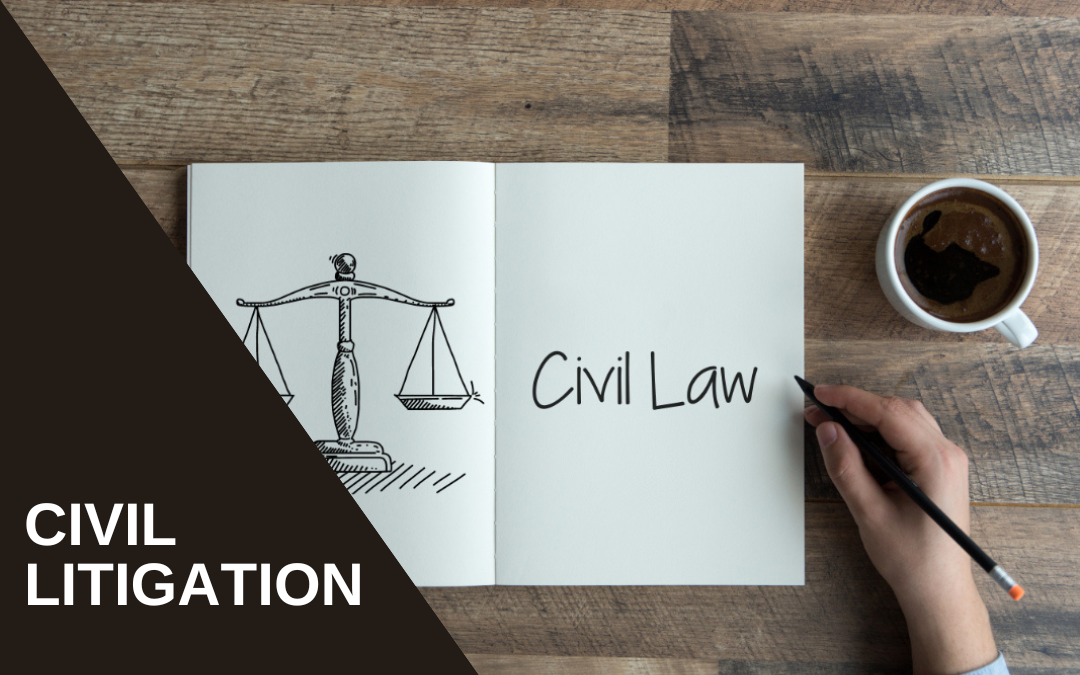
Frequently Asked Questions (FAQs) About Civil Litigation
What is Civil Litigation?
Civil litigation refers to legal proceedings involving non-criminal disputes between individuals or entities. Unlike criminal cases seeking punishment, civil lawsuits aim to resolve private conflicts and award compensation or enforce specific actions. Examples include breach of contract, personal injury, and property disputes.
What is Dispute Resolution?
Dispute resolution encompasses various methods to settle disagreements outside of courtroom litigation. Popular options include:
- Mediation: A neutral third party facilitates communication and helps parties reach a mutually agreeable solution.
- Arbitration: A neutral third-party acts as a judge, issuing a binding decision based on evidence presented.
- Negotiation: Parties directly discuss and compromise to find a suitable outcome.
What are the different types of civil cases?
The broad spectrum of civil cases encompasses:
- Contractual disputes: Breach of agreement, non-payment, or defective performance.
- Personal injury: Claims for compensation due to negligence or intentional harm.
- Property disputes: Ownership rights, boundary issues, and related disagreements.
- Employment disputes: Unfair dismissal, discrimination, or breach of contract.
- Family law: Divorce, child custody, and property division.
- Intellectual property: Infringement of patents, trademarks, or copyrights.
What are my rights during a workplace investigation?
If your employer conducts an investigation against you, you have the right to know the nature of the investigation, be informed of any allegations, and access relevant documents. You can also have a representative present during interviews and provide your own perspective. Cooperate fully but protect your rights by avoiding self-incriminating statements.
How long does a civil lawsuit take?
The duration of a civil lawsuit varies significantly depending on:
- Case complexity: Simple cases may resolve quickly, while complex ones involving extensive evidence and expert witnesses can take years.
- Court backlog: The efficiency of the court system and scheduling availability can significantly impact the timeline.
- Settlement negotiations: If parties attempt to settle outside of court, the process can shorten or lengthen the overall time.
What are the grounds for appealing a civil lawsuit?
Appealing a civil lawsuit involves challenging the lower court’s decision based on legal errors, such as:
- Incorrect interpretation of the law
- Improper admission or exclusion of evidence
- Procedural errors during the trial
- Miscarriage of justice due to bias or misconduct
Appealing is a complex process requiring legal expertise, and success depends on demonstrating valid grounds for revisiting the case.
What is the difference between civil and criminal litigation?
The critical distinction lies in the purpose and consequences:
- Civil litigation: Resolves private disputes, seeking compensation or specific actions. No criminal penalties are involved.
- Criminal litigation: Aims to punish individuals for offenses against society, resulting in potential fines, imprisonment, or other sanctions.
The burden of proof, standard of evidence, and procedural rules also differ between the two systems.
What is the difference between mediation and arbitration?
Both are alternative dispute resolution methods, but key differences exist:
- Mediation: Facilitates communication, aiming for a mutually agreeable solution. The outcome is non-binding, requiring voluntary acceptance by both parties.
- Arbitration: The arbitrator acts as a judge, issuing a binding decision based on evidence presented. This decision is more enforceable than a mediated agreement.
Choosing between mediation and arbitration depends on your desired level of control over the outcome and the binding nature of the result.
What should I expect from my civil lawyer?
Your civil lawyer should:
- Provide clear explanations of the legal process and your options.
- Guide you through all stages of the case, from initial consultation to trial or settlement.
- Advocate effectively for your interests in court or during negotiations.
- Communicate with you openly and regularly, addressing your questions and concerns.
- Work collaboratively with you, respecting your input and decision-making authority.
What are the limitation periods for civil lawsuits in Canada?
These FAQs are for general informational purposes only and are not legal advice. Contact us today to discuss your specific situation.
